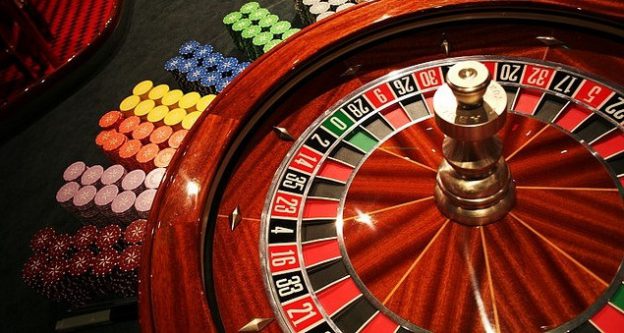Roulette remains one of the most popular casino games around, both online and at your local casino.
The premise of the game is simple – you pick a number and hope when the spinning ball stops that it lands on a number you have placed a bet on.
The game’s popularity is worldwide, but there are differences to roulette around the globe, with there being both a European and an American version, which both offer exactly the same roulette odds.
In this article, we look through both versions and explain the differences between the two as well as finding out more about the ball which makes it all possible.
Want to give roulette a try? You can also play on our online roulette tables here.
European Roulette Wheel
This is by far the most popular version around with 37 pockets on the wheel with numbers from 1-36 as well a single green zero pocket.
Roulette wheel numbers sequence
The sequence of numbers on a European roulette wheel is as follows:
0, 32, 15, 19, 4, 21, 2, 25, 17, 34, 6, 27, 13, 36, 11, 30, 8, 23, 10,
5, 24, 16, 33, 1, 20, 14, 31, 9, 22, 18, 29, 7, 28, 12, 35, 3, 26
The sequence does not follow any particular pattern and that is what makes it even more difficult to try and predict what number the ball will land on each time.
From looking at the wheel you cannot see a relation between one number and the next other than that it goes in an odd-even fashion.
As well as that, the adjacent numbers also go in a red-black format all the way around and again you cannot see a pattern emerge from where the numbers are placed.
The numbers are also alternate between low (1-18) and high (19-36) and the only real exception is with 5 and 10’s position on the wheel.
Even and odd numbers are evenly distributed around the wheel, and on no occasion is there more than a run of two even or odd numbers in a row.
While playing roulette there is certain information which is made available to players based on previous results, enabling them to place a bet based on that.
Generally, it shows what numbers have come out more often than others and the colour of the winning bet – which could influence whether you place a bet on a red or black number.
European Roulette table
The European roulette table shows every number you can bet on, while the green zero is placed at the top of the table.
It is also divided into several sections in which you can place bets, such as:
Red/Black – You can place a bet on the ball landing on a red or black number.
Odd/Even – You can place a bet on the ball landing on an odd or even number.
1st/2nd/3rd 12 – You can place a bet on the ball landing on numbers 1-12, 13-24, 25-33.
Columns – You can place a bet on whether the ball lands on a number in the left, centre or right column.
Halves – You can place a bet on whether the ball lands on a number between 0-18 and 19-36.
American Roulette Wheel
An addition to the American Roulette Wheel which isn’t on the European version is a 38th potential outcome – a green double zero.
Roulette wheel numbers sequence
The sequence of numbers on the American roulette wheel is as follows:
0, 28, 9, 26, 30, 11, 7, 20, 32, 17, 5, 22, 34, 15, 3, 24, 36, 13, 1,
00, 27, 10, 25, 29, 12, 8, 19, 31, 18, 6, 21, 33, 16, 4, 23, 35, 14, 2
Just from looking at the numbers above, you can see there is more of sequence and pattern than on the European version with the preceding numbers appearing adjacent on the table.
Although it is only a minor difference it can have a major impact as the addition of the double zero gives the American casinos more potential profit over the person playing roulette in comparison to European roulette.
American roulette table
All tables are again very similar, and the only difference being that the American version has the addition of the double zero, which again is placed next to the single zero at the top of the table.
Roulette ball
A roulette ball, or as it is also known, a pill, used to be made out of ivory but is now more commonly made out of moulded acetal, nylon or phenolic and all three of those materials can play a big role in the ball’s liveliness on the roulette wheel.
The livelier a ball is on the wheel the more difficult it is to predict where it will land, and therefore it is commonly used in casinos to avoid players using number-projecting schemes. However, there are some drawbacks to a livelier ball as it can jump out onto the floor and cause delays in the game.
At most casinos, a dealer is likely to have two or three additional balls at their disposal and they change the ball as and when they feel it is necessary and they also come in a series of sizes – 3/4 of an inch, 13/16 of an inch or 7/8 of an inch.

Leave a Reply